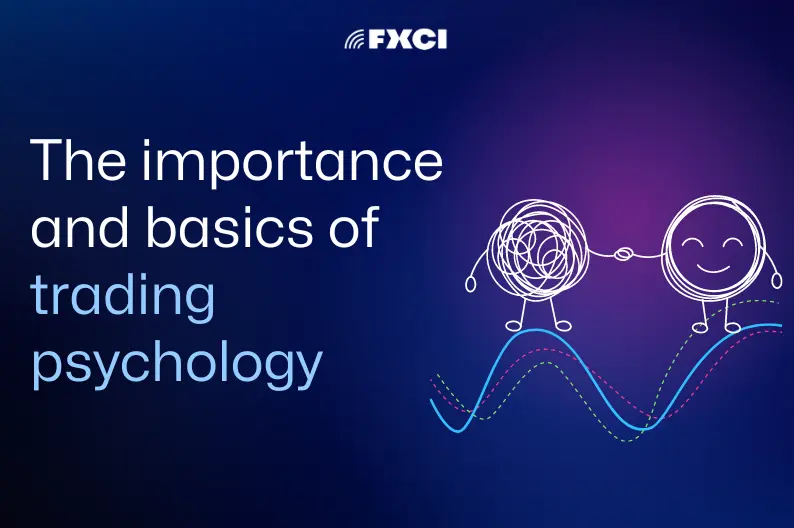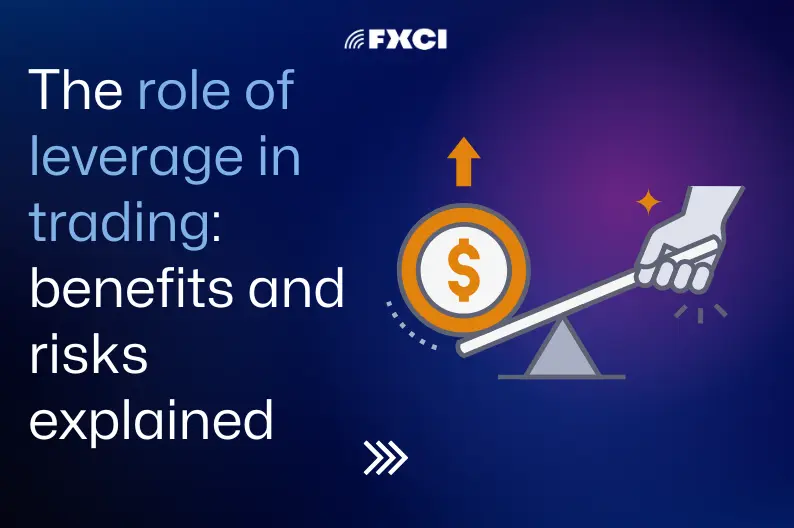
Table of Contents
- What is Trading Psychology?
- Why is trading psychology critical?
- Understanding the Fundamentals of Trading Psychology
- Eliminate the two most harmful emotions from your trading.
- Common Psychological Traps Traders and Investors Should Be Aware Of
- How to make emotions your friends, not your enemies
- Dispelling Trading Misconceptions
- Executing risk management strategies
- Conclusion
Forex trading has the potential to be highly lucrative, but it also comes with substantial risks. In order to excel in forex trading, it is crucial to possess a deep comprehension of market fundamentals and technical analysis, as well as a firm understanding of the psychological aspects involved in forex trading.
This article is dedicated to the basics of Forex trading psychology. You will learn about why it is essential and what psychological traps traders can fall into.
What is Trading Psychology?
Psychology explores the intricacies of the human mind and behavior. Therefore, when discussing trading psychology, our primary focus is on the various emotions and feelings that stock traders experience during their trades.
Understanding how our mind responds to certain stimuli and the resulting emotions can be crucial for maintaining a controlled mental state, which is essential for success in trading.
People possess intricate feelings. For instance, in the case of a declining stock price, you may retain it due to your consistent consumption of a product provided by the company and your faith in its potential.
There is a b sense of admiration at play that prevents you from simply examining the data and instead encourages you to take on more risks. Although emotions are not inherently harmful, it is crucial to recognize when to control them in order to prevent significant setbacks.
Traders who possess a greater sense of emotional regulation often make more rational decisions in comparison to those who rely solely on their instincts.

Why is trading psychology critical?
The role of trading psychology cannot be overstated, as it significantly impacts a trader's success or failure in the financial markets. Traders with a solid grasp of trading psychology excel at managing their emotions and making logical decisions rooted in market analysis rather than being swayed by fear, greed, or other emotional reactions. In addition, they possess a more remarkable ability to navigate the fluctuations of the market, handling both losses and setbacks with composure and avoiding hasty decisions driven by emotions.
Conversely, traders who face challenges with their trading psychology may find themselves more susceptible to errors, such as prolonging losing positions, taking on excessive risks, or succumbing to heightened emotions and impulsive decision-making. These actions can result in financial losses and ultimately hinder their chances of success in the markets.
Thus, cultivating a robust trading mindset is crucial for traders to achieve success in the markets.
Understanding the Fundamentals of Trading Psychology
Trading psychology varies from trader to trader and is shaped by their emotions and biases. Greed and fear are the two primary emotions that can significantly influence the outcome of a trade, determining whether it will be successful or end in failure.
Greed can be described as an intense longing for profits that has the potential to impact a trader's rationality and judgment. An example of a trade driven by greed could be purchasing stocks of unproven companies simply because they are experiencing a surge in value or investing in a company without fully comprehending the underlying investment.
Excessive greed can cause a trader to hold onto a position for an extended period, hoping to extract every possible gain from the trade. Towards the end of a bull market, traders typically engage in risky and speculative positions to capitalize on market movements.
However, fear can be seen as the antithesis of greed and often leads people to exit trades too soon or avoid taking on risky positions out of fear of potential losses. Investors usually make irrational decisions when driven by fear, leading them to exit trades hastily. This is a frequent occurrence during bear markets, marked by substantial selloffs resulting from panic selling.
Emotions like fear and greed can significantly impact a trader's strategy, making it crucial to master emotional control in order to achieve success in trading.
Eliminate the two most harmful emotions from your trading.
Fear. Every trader must overcome their fear of losing at some point. It can be disappointing when a position doesn't work out, but even the most renowned investors in the world are not immune to making mistakes. Then comes the fear that creeps in after three or four failures: the worry that this could be the beginning of a streak of continuous losses. This fear is also unfounded. It's important to understand that trading is a process that comes with its fair share of highs and lows. To achieve long-term success, it's crucial to embrace the lessons learned from past mistakes and continuously enhance your technical and fundamental analysis abilities.
Greed. Inexperienced traders often fall victim to their greed. They tend to hold onto a position for too long, hoping for a more significant profit. Unfortunately, this usually leads to missing the opportune moment to close the position, resulting in their profits disappearing. Many traders struggle with this issue because they need to take the time to create a trading plan that includes clear rules for entering and exiting trades. Many individuals fail to adhere to their trading plans, even if they have one in place. Regardless of the approach, this type of money management can result in unwise choices and significant financial losses.

Common Psychological Traps Traders and Investors Should Be Aware Of
Failures in financial markets can often be attributed to factors other than investors' lack of experience and knowledge or their inability to create or use a good strategy and trading system. Despite having a system that generates flawless signals and well-defined rules for money management and risk management, many individuals still end up losing their entire investment capital or a portion of it.
Losses are often a result of emotional interference and difficulties in maintaining trading discipline. Frequently, they arise when traders become ensnared in psychological pitfalls. Here are some of the most common ones.
- Confirmation Bias: This phenomenon is characterized by a propensity to actively search for and interpret information in a manner that aligns with preconceived notions. Traders don't need to be sure of their infallibility. They may have developed a specific viewpoint over time, particularly regarding the conduct of a selected asset.
- Effect of Similarity: This concept refers to the inclination to have confidence in situations that are similar to ones in which a trader has previously achieved success, even if they are not directly connected to the present situation. This may result in risky decisions that rely solely on previous successful outcomes rather than a thorough analysis of the present circumstances.
- The Illusion of Control: Caught in the illusion of control, a trader mistakenly believes they have more power over the situation than they truly possess.
- The impact of loss aversion: This trap manifests when traders exhibit a cautious approach to decision-making in order to minimize risks.
- Groupthink Effect: The groupthink effect is evident when decisions are made in accordance with the collective opinion, regardless of its alignment with reality.
How to make emotions your friends, not your enemies
Exploring the concept of FOMO
Traders should quickly recognize and overcome the fear of missing out (FOMO) when it emerges. Although it may be challenging, traders need to keep in mind that there will always be more opportunities to trade. It is crucial to only engage in trading with funds that they can afford to lose.
Preventing trading errors
Even the most experienced traders make mistakes from time to time. However, by understanding the reasoning behind these errors, you can minimize their negative impact on your trading. Many people tend to make a few trading mistakes. These include spreading themselves too thin by trading on multiple markets, not maintaining consistent trading sizes, and taking on too much risk by overleveraging.
Conquering the desire for more
Greed is a prevalent emotion that often consumes traders, making it a topic that warrants careful consideration. When traders let their desire for more money override their rational thinking, they usually make the mistake of doubling down on trades that are already losing or using too much leverage in an attempt to make up for previous losses. Although it may be challenging, traders need to grasp the concept of managing their greed while trading.
The significance of maintaining a consistent trading approach
Many new traders often seek opportunities wherever they may arise and are tempted to trade in various markets without considering the inherent differences between them. Traders who need to develop a carefully planned strategy that prioritizes a select few markets will likely experience unpredictable and unreliable outcomes.

Dispelling Trading Misconceptions
Like anyone else, we are often influenced by what we hear, and trading is no exception. Various rumors are circulating about trading, such as the notion that traders must possess a substantial account in order to achieve success or the belief that profitability hinges on winning the majority of trades. Trading myths sometimes create a mental barrier that hinders individuals from engaging in trading.
Executing risk management strategies
Effective risk management is of the utmost importance. There are numerous psychological benefits associated with it. Having a clear target and stop loss in mind from the beginning provides traders with a sense of relief, as they know exactly how much they are willing to risk to achieve their goal. Position sizing is an essential aspect of risk management that can have significant psychological benefits.
Conclusion
Understanding the psychology behind trading is essential and should always be considered. Mastering trading psychology is just as crucial as understanding technical or fundamental analysis. By cultivating a resilient trading mindset, traders can effectively navigate emotional biases and enhance their prospects for success.
We hope you enjoyed this article. Thank you for reading. The FXCI blog has even more useful materials. We wish you success in trading!





